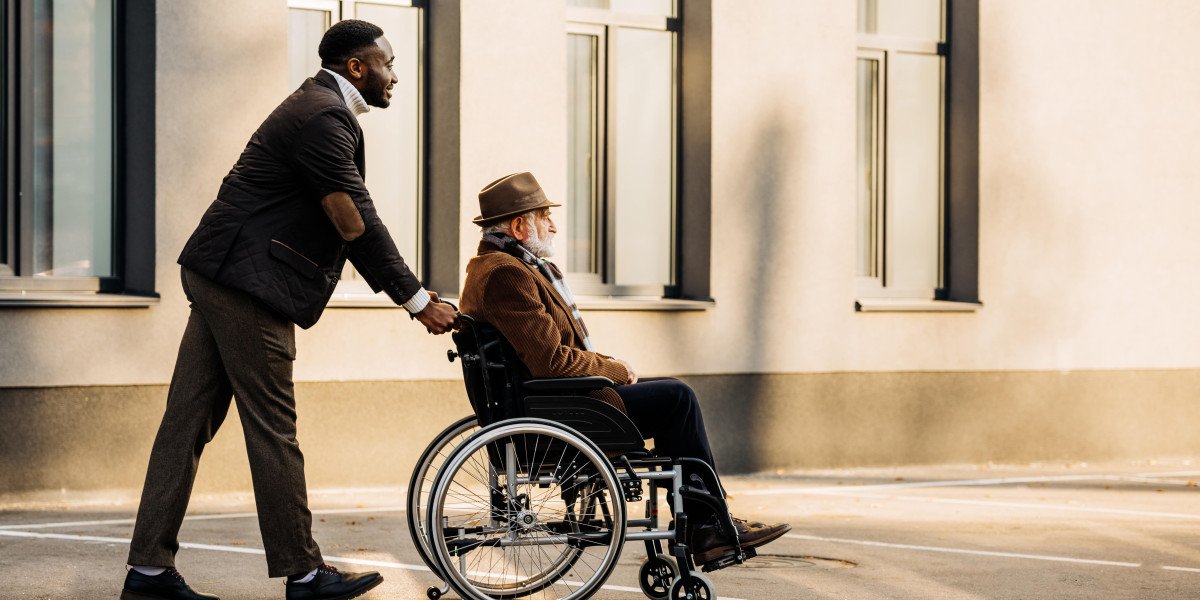
Understanding Rollators for the Elderly: A Comprehensive Guide
As our liked ones age, preserving mobility and independence becomes a necessary element of their lifestyle. Rollators, a kind of mobility aid particularly designed for the elderly, play a considerable function in assisting seniors keep their self-reliance while guaranteeing their safety when walking. This short article uses a comprehensive understanding of rollators, discussing their functions, benefits, types, and crucial considerations for selecting the best one.
What is a Rollator?
A rollator is a wheeled walker geared up with a frame, handlebars, and wheels that allow smoother and more stable movement for people having difficulty walking. Unlike standard walkers, rollators include four wheels and frequently consist of a seat, making it simpler for users to take breaks during their walks.
Secret Features of Rollators
Rollators include a number of essential features that offer comfort and safety for elderly users. Here's a table summing up some essential functions:
| Feature | Description |
|---|---|
| Wheels | Usually have 4 wheels for simple maneuverability |
| Brakes | Hand-operated brakes make it easy to stop the rollator |
| Seat | Numerous designs include a padded seat for resting on the go |
| Storage | Under-seat baskets or front bags to bring individual items |
| Height Adjustment | Manages that can be height-adjusted for private comfort |
| Foldability | A lot of rollators can be quickly folded for transportation and storage |
Benefits of Using a Rollator
Rollators are designed with the needs of the elderly in mind and feature many advantages:
- Increased Mobility: Rollators supply stability, enabling seniors to stroll more easily without the worry of falling.
- Boosted Independence: With a rollator, older adults can move around their homes and neighborhoods more conveniently.
- Cushioned Seat: The inclusion of a seat makes it possible for users to rest whenever they feel tired.
- Storage Solutions: Rollators can hold bags or individual valuables, permitting users to carry items without additional effort.
- Safety Features: The brakes ensure that the rollator stays in place when needed, decreasing the threat of unintentional slips.
Kinds of Rollators
Selecting the right rollator depends on the person's particular requirements. Here are numerous types commonly found on the marketplace:
- Standard Rollators: Usually equipped with 4 wheels, brakes, and a seat. Appropriate for a lot of users.
- Heavy-Duty Rollators: Designed for bigger and heavier individuals, these models frequently support more weight and supply a larger seat.
- Three-Wheel Rollators: More compact and simpler to steer, ideal for indoor use or tight areas.
- Bariatric Rollators: Specifically designed to support much heavier weights and supply extra stability and convenience.
- Folding Rollators: Lightweight and quickly foldable, perfect for travel or those with limited storage space.
Factors to Consider When Choosing a Rollator
Selecting the right rollator involves thinking about different essential elements:
- Weight Capacity: Ensure the rollator can support the weight of the user conveniently.
- Handle Height: The height needs to be adjustable to avoid pressure while using the rollator.
- Weight of the Rollator: A lightweight rollator is easier for the user to handle.
- Storage Options: Look for rollators with enough storage space for individual products.
- Terrain Suitability: Consider whether the user will predominantly use the rollator indoors, outdoors, or on uneven surfaces.
Extra Features to Look For
- Reflective Materials: For boosted exposure in low-light conditions.
- Convenience Grips: Ergonomic handles to provide convenience throughout extended use.
- Tire Type: Soft tires are better for indoor use, while difficult tires can manage rough outdoor terrains.
Often Asked Questions (FAQs)
1. How do I know if a rollator is right for me or my enjoyed one?
Examine the individual's mobility issues, their living environment, and their strength. Consulting with a doctor can likewise provide personalized recommendations.
2. Can rollators be utilized outdoors?
Yes, many rollators are particularly created for outdoor use and include larger wheels for much better maneuverability on unequal surface areas.
3. How do I maintain a rollator?
Regular cleaning of the frame, checking the brakes for functionality, and making sure wheels remain in great condition are important for maintenance.
4. Is it safe to use a rollator on stairs?
Rollators are not developed for use on stairs. Alternative stair climbing up aids or support from caretakers ought to be thought about.
5. What is the difference between a rollator and a walker?
While both are mobility aids, rollators have wheels and are designed for boosted mobility and stability, whereas walkers need users to raise them as they stroll and typically do not have wheels.
Rollators substantially improve the lifestyle for the elderly by promoting self-reliance and safety in mobility. With various types, features, and considerations, it is crucial for caretakers and member of the family to pick the proper rollator for their loved ones. Buying a quality rollator can provide the elderly with the self-confidence to browse their environments, continue enjoying their day-to-day activities, and bring back a sense of self-reliance in their lives.








